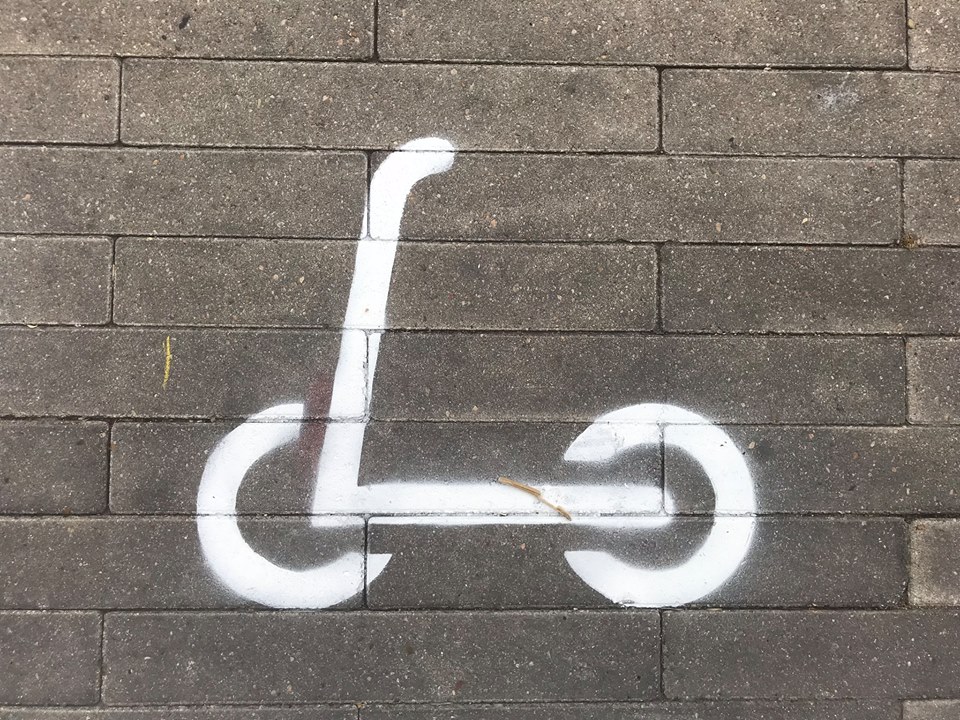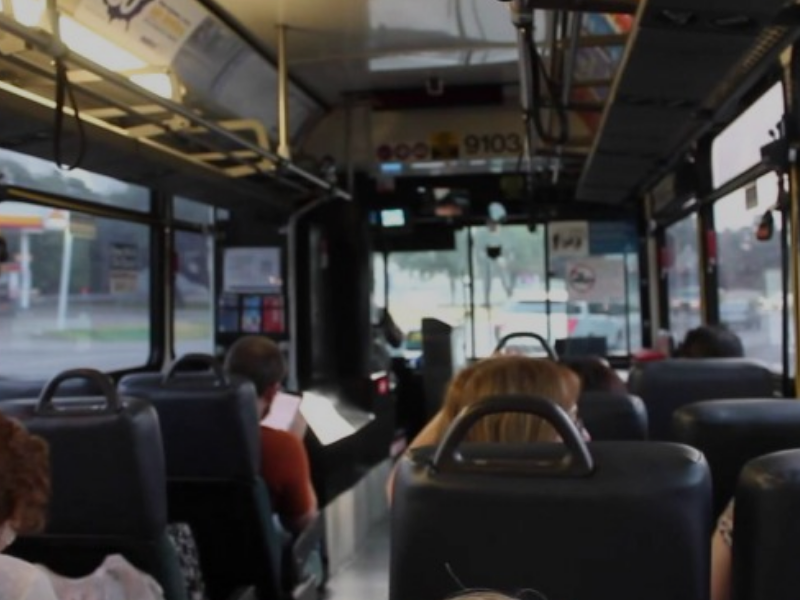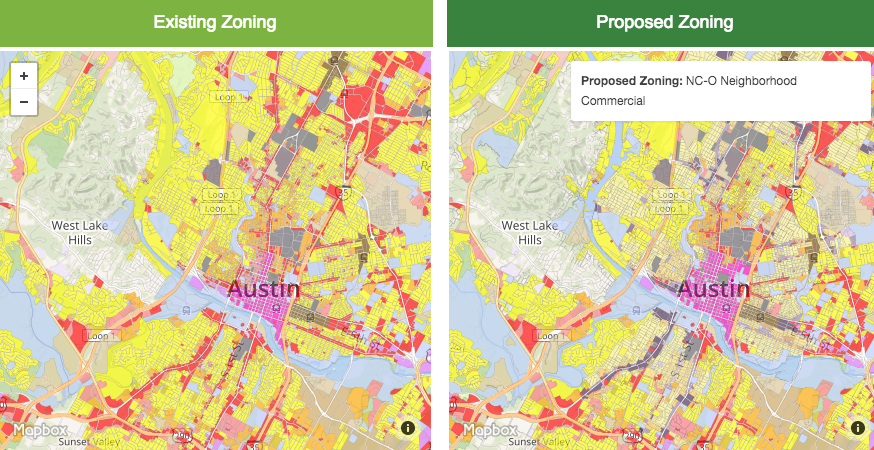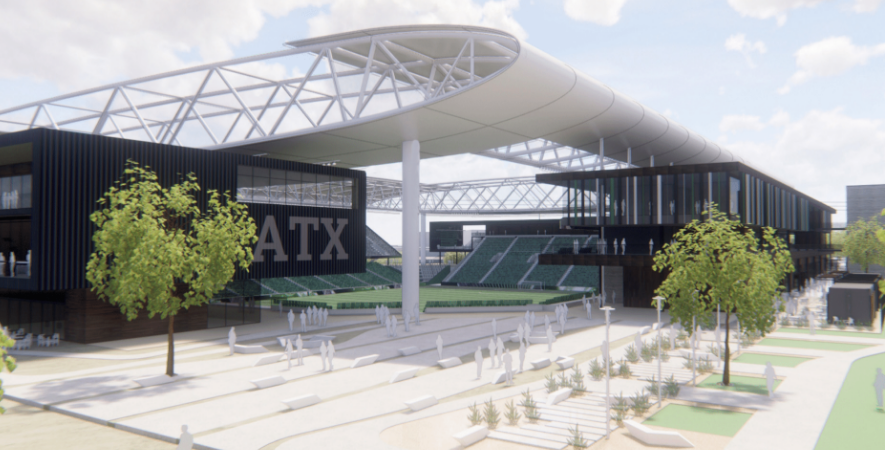The new year is officially here! But before we dive head first into all of our resolutions, plans, and goals we wanted to take a moment to reflect. 2018 was a year so full of big elections, important court cases, and extreme weather events that at times, it was difficult to keep track of everything that happened.
So here it is, our list of the 10 biggest (eco) things to happen in Austin in 2018.
1. Curbside composting gets rolled out to 38,000 new Austin households.
This move by Austin Resource Recovery (the city department that’s in charge of trash, recycling, and composting pickup) brought composting to about half of all of Austin’s single family households, making major strides towards Austin’s goal of becoming zero waste by 2040.
(Wondering if you have access to curbside recycling pickup? Simply type your address into this website.)
2. Dockless bikes and scooters arrive in Austin… and quickly spread throughout the city.
In April, the City of Austin began hosting a series of public forums to collect feedback on the best ways to launch a pilot dockless bike share program in Austin. While that was happening, two dockless scooter companies (Bird and Lime) decided to launch anyway (before the city had developed an official program and permitting process). In response, the city quickly developed a set of rules, as well as a permitting process, for both dockless bikes and scooters.
As more and more dockless companies arrived in town, the rules continued to be updated by the city as the debate raged on over how many should be allowed on the city’s streets. You can check out the latest set of rules here.
3. Cap Metro launches some major changes to its bus service… and gets mixed reviews.
In June, Cap Metro officially launched Cap Remap, the largest set of changes ever made to our city’s bus service. These included 10 new bus routes and eight new high-frequency bus routes (with buses coming every 15 minutes or faster).
But not everybody was happy with the changes. In an effort to more efficiently utilize its resources and boost ridership, Cap Metro decided to close some bus routes and focus more of its money on increasing frequency along other routes with the potential for more ridership. This caused a lot of controversy over the merits of trying to attract new riders (who perhaps don’t need to use public transportation, but in doing so could help to address our region’s traffic and environmental problems) versus serving Cap Metro’s current riders.
4. The Texas State Supreme Court strikes down Austin’s single-use bag ban.
Over the summer, the Texas State Supreme Court effectively struck down the single-use (aka plastic bag) ban in Austin, as well as in about a dozen other Texas cities.
The judges unanimously found that the bans violate a state law, which says that local governments cannot,“prohibit or restrict, for solid waste management purposes, the sale or use of a container or package in a manner not authorized by state law.”
But the issue is not over yet. State Representative Gina Hinojosa (who represents part of Austin in the state Legislature) filed a bill in December that would allow Austin to reinstate its single-use bag ban. When the new Texas legislative session begins in 2019, these so-called bag bans will certainly be a hot topic.
5. After years and years of debate, CodeNEXT dies (kind of).
The city’s biggest debate ended (at least temporarily) over the summer when Austin Mayor Steve Adler suggested that Austin “cease the CodeNEXT process and ask the City Manager to create a new process that will help us move forward together.”
( A little reminder – CodeNEXT was the name of the city’s process for rewriting its land development code. Kind of like a rule book for the city, a land development code decides what can be built where, which means that it impacts everything from transportation, to affordability, to gentrification. Because it addresses so many of Austin’s biggest problems, the debate over CodeNEXT grew especially intense throughout 2018 as Austinites tried to figure out the best ways to deal with displacement, density, and our growing population.)
“The need to revise this land development code is greater than ever before,” Adler wrote on the City Council message board after announcing his decision to end the CodeNEXT process. “Yet, it is becoming increasingly apparent that the CodeNEXT process, so divisive and poisoned, will not get us to a better place.”
Despite the mayor’s call for a stop or pause in the CodeNEXT process, our city’s land development code is still over 30 years old and many still believe that at least parts of it need to be revised. In one form or another, land development regulations will still be a topic of conversation in 2019.
6. Electric buses arrive in Austin.
Cap Metro began testing out electric buses on our city’s streets over the summer, with the goal of adding 40 of them to our city’s fleet by 2024.
7. Austin floods… and then runs out of water.
Massive flooding throughout central Texas overloaded our city’s water treatment plants with silt and dirt, making it difficult for them to produce clean drinking water. This put the city on a boil water notice for seven days and raised a lot of questions about how to prevent crises like this one from happening again in the future, especially considering the fact that climate change is only supposed to bring more flooding to the region.
8. The UN releases a pretty scary climate report.
In October, the United Nations Intergovernmental Panel on Climate Change released a new report written by 91 authors from 40 different countries, which analyzed 6,000 different scientific studies. The report found that we really only have 12 years to dramatically reduce global emissions ( in order to avoid some of the worst effects of climate change).
In a press release, one of the IPCC Working Group III’s co-chairs, Jim Skea, said that while achieving this is possible “within the laws of chemistry and physics,” it will “require unprecedented changes.”
This includes a massive amount of political will, as well as participation from individuals and the private sector. In particular, the report stressed the need for some sort of price on carbon (like a carbon tax or cap and trade policy).
“…The next few years are probably the most important in our history,” said Debra Roberts, co-chair of IPCC Working Group II, in a press release.
9. Austin elects a new City Council… and sets aside millions of dollars for affordable housing.
2018 was a big election year nationwide, with unusually high voter turnout for the midterms (aka non-presidential election). In Austin, we elected two new City Council members. Starting in 2019, Natasha Harper-Madison will represent District 1 (east Austin) and Paige Ellis will represent District 8 (southwest Austin).
It was also a big year for propositions and bonds on the ballot. In the end, voters approved $925 million in bonds, including the city’s largest ever affordable housing bond ($250 million).
10. Austin gets a soccer team, then doesn’t, then does?
In 2017, the owner of the professional soccer team Columbus Crew announced that he was exploring moving the team from Ohio to Austin, citing the desire for a centrally-located stadium as one of the major drivers motivating his decision. The announcement was marked by excitement for some (it would be Austin’s first professional sports team) and apprehension by others (who feared Columbus Crew might be seeking public funds or favors from Austin taxpayers).
This debate came to a head in 2018 as Austin City Council discussed possible city-owned locations for a soccer stadium, eventually landing on McKalla Place (near the Domain in north Austin). The debate also centered around potential tax breaks for the stadium and whether it was appropriate for the city to offer any incentives at all.
In the end, Austin City Council voted 7-4 to move forward with a stadium deal. But in another twist, the Columbus Crew soccer team was saved from relocation by the owner of the Cleveland Browns football team, who put forth the money to keep the team in Ohio.
Despite all of this, MLS still has intentions to bring a team to Austin as early as 2020 or 2021. A lease was signed in December.
But the story is not over yet. The controversy over the stadium continues into 2019. As KUT reports, a petition was brought to City Hall on Thursday calling for the stadium deal to go to a public vote.











